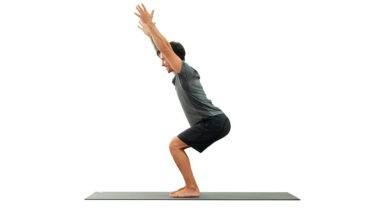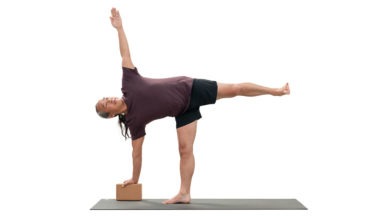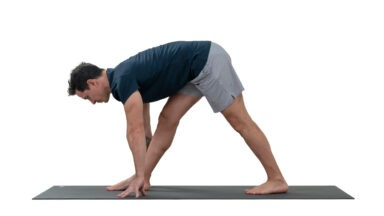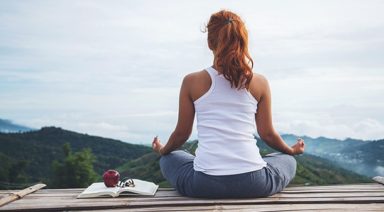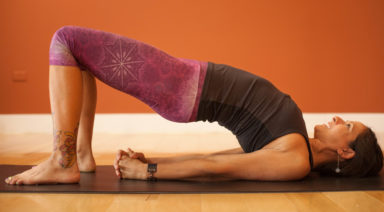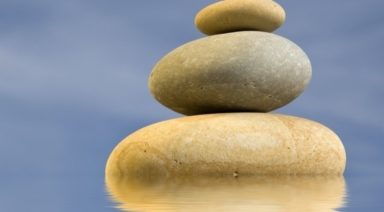5 Simple Morning Rituals to Uplift Your Mind, Body and Spirit

“Each night, when I go to sleep, I die. And the next morning, when I wake up, I am reborn.”
— Mahatma Gandhi
The subtle beauty that occurs each morning, as the earth transitions from darkness to light, is so often filled with dread or, at the very least, busyness and rushing that we miss it altogether. According to the science of Ayurveda, by waking up at one and a half hours, or at least twenty minutes, before the sun rises, you experience “special energy in the air.” This special energy makes it easier to get out of bed, as opposed to waiting until after the sun rises, which can make you feel lethargic or, as many of us have experienced, irritable and anxious. This pre-sunrise time, which is referred to as Brahma-muhurata (“the time of Brahma”), is said to be when “hope, inspiration, and peace” are manifested in the universe.
With the universe calm and your mind fresh, you can leverage this additional time for yourself, allowing it to be hugely beneficial not just for your physical body, but for your emotional and spiritual well-being too.
Because we’re so accustomed to our daily schedules, following the same routine every day as we prepare for work or help to get kids ready for school, carving out extra time each morning simply to care for yourself can feel groundbreaking. For most people, these additional twenty minutes can feel almost like two hours, especially when they spent wisely. And, even when you’re “doing things” that very well could be considered just same-old-same-old parts of the day, by approaching them to be mindful, that they are something more, something special, you begin to unveil a whole new world, one where everything starts to be steeped in magic.
5 Simple Morning Rituals for Mind, Body and Spirit
At their very core, rituals are designed to feel sacred; a prescribed way to honor something greater than yourself. Whether your early morning rituals are done to bring yourself closer to God, Spirit, Universe, or as an acknowledgment of the beauty of a new day, each one has the opportunity to craft your day, setting both the tone and the underlying theme for everything that comes next.
1. Start a Sadhana Practice
With a spiritual yoga practice, each and every sadhana is unique to the practitioner, which means you can tailor it to be exactly what you need to feel your best in the morning. To begin, make sure you are practicing in a space that feels sacred and inviting. Even something as simple as bringing in fresh flowers or lighting a candle can transform your living room or bedroom. Try incorporating asana, pranayama, and meditation to your sadhana practice. Try sticking to the same routine before switching to something new in order to truly feel the total benefits.
2. Make Tea
Homemade chai is actually very simple to make. The beauty of starting your day with this practice is that it awakens all of your senses (the smell while it simmers is intoxicating), while also forcing you to slow down. Mindfully choosing your ingredients, patiently standing by as the water boils, and then steeping the tea is a meditation in its own right. And, the best part, you get to enjoy the ritual of drinking homemade tea when you’re finished.
3. Journaling
Journaling is such a powerful morning practice that I often incorporate it into my sadhana practice. But, even on its own, journaling is a simple, always accessible form of ritual that will help you clear your mind for the day. Oftentimes as I journal I discover a mantra for my day, a simple word or phrase becomes my focus and intention behind everything I do. This type of clarity helps me to see the big picture as I face challenges during the day.
4. Drink Warm Water
Instead of making a cup of coffee, the first thing you reach for in the morning, choose warm water with lemon or lime instead. According to Ayurveda, the first thing you drink sets the entire tone for your day. By choosing warm citrus water you don’t just stimulate the gastrointestinal tract, but you also get a boost of vitamins and minerals from the lemon or lime, which are found to be beneficial for digestion as well. You can add local honey to lemon water or pure maple syrup to lime water for extra benefits, and a sweet start to your day.
5. Massage Your Body
There are, of course, a million different ways to do this and you’ll find one that speaks to you specifically as you start to research the variety of methods and modalities. Depending on how much time you have each morning, you can make this self-massage as quick or as decadent as you like. While a full body massage with oil is a beautiful ritual, not all of us will have time for this practice each and every day. Instead, opt for a simple face massage, paying special attention to the third eye and the ears. A foot massage is another great point of focus for your morning ritual as it helps to stimulate the entire body.
Personally, one of the most transformative practices I do each morning is taking a cold shower. Not only does this (really) wake you up, but it completely shifts your energy and increases your circulation. To help soften the “blow,” I cover my body in oil (like sesame or coconut) before stepping into the water. Even two minutes can pull you out of emotional blues and set yourself up for a beautiful day ahead.
START YOUR MORNING RITUAL
How to Create a Yoga Space at Home
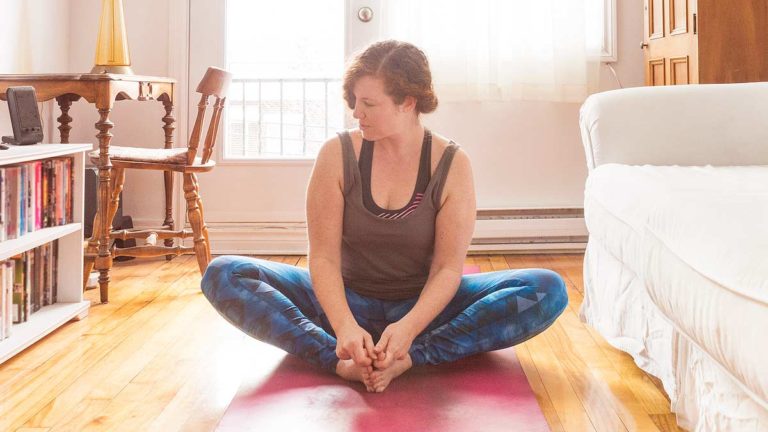
Yoga has been a vital practice for ages, assisting with overall health and mindfulness. It doesn’t take much work to transform an area of your home into the perfect yoga zone. All you really need is a mat and enough room to move around 360 degrees. Creating your own inviting and intimate yoga space will amp up your practice and zen mindset a hundredfold!
Having a peaceful space to practice yoga is beneficial to your overall health. It dissolves the stress from a long day at the office and helps you forget about the fact that you spend about 38 hours a year stuck in traffic. Ditch the laundry piles. Clean out that old office you never use. Get ready to transform your space and your life.
You Need a Suitable Mat and Comfortable Clothing
Cotton or other natural fiber clothes are preferable for their ability to “breathe” and flow with your body. Choose yoga pants or other relatively loose-fitting pants. You need to see the alignment of your body. You don’t want your clothes to restrict your movements, and you don’t want to trip over your pants, either. Bare feet, or socks that have a grip, are also preferable to tennis shoes or regular slippery socks.
Consider the Floor and Balance
It’s much easier to practice on a hardwood or tiled floor than a carpet. You can hold your poses with a sustained balance on a more even surface. Using a hardwood floor also reinforces your connection with the element of Earth. No matter what floor you choose, use a thick yoga mat with good traction for your feet and pick a mat that matches your style.









